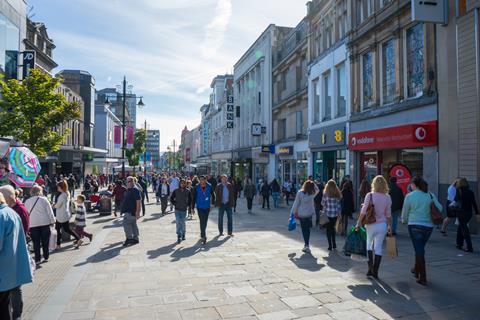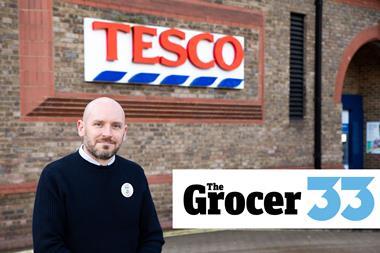
Retail, hospitality, and leisure will get “much-needed certainty and support” thanks to a higher tax on the most valuable 1% of business properties, according to treasury minister James Murray.
Increasing business rates from 2026 for the biggest properties will enable a permanent reduction in the tax for the retail, hospitality and leisure properties that “make up the backbone of our high streets”. In doing so it will “help make sure online giants pay a fairer share”, Murray argues in an opinion piece in The Grocer today.
Plans to tax the biggest biggest business properties more from 2026 to pay for a discount for smaller properties in retail, hospitality and leisure were set out in a business rates discussion paper published by the government alongside the budget on 30 October. The higher rate is to apply to properties with a rateable value of £500,000 or more.
The budget also slashed business rates relief for retail, hospitality and leisure from 75% to 40%, effective for a year from April 2025.
Last Wednesday, the government introduced draft legislation to the Commons to enable the planned introduction of permanently lower rates for high street businesses from 2026, saying it would be “funded by a tax rise for the very largest business properties, such as online sales warehouses”.
Business rates experts have argued that large bricks and mortar retailers – including major supermarkets and those on retail parks – will be hit with the higher tax along with online giants.
“As well as impacting on the distribution and warehouse sector, this will also impact the larger businesses in the retail,” said Colliers head of business rates John Webber.
“So, the bigger businesses, the ones that actually create the jobs, will be hit for six.”
Paul Turner-Mitchell of real estate intelligence firm Altus Group, said: “Nearly three times the amount of retail, leisure and hospitality premises will pay the new high street levy in 2026 compared to large distribution warehouses, despite the government pledging to ‘level the playing field between the high street and online giants’.”
Turner-Mitchell said only 17% of the 100 largest distribution warehouses were occupied by online-only retailers.
Murray argues in his opinion piece that other out-of-town large businesses besides online giants also “draw footfall away from high streets”.
His defence of the plan comes after a draft letter from the BRC to Chancellor Rachel Reeves was leaked to Sky News on Wednesday warning of the “sheer scale of new costs” in the budget for retail, including increases in business rates and employers’ national insurance.
The letter said nearly £2.5bn would be added to the industry’s annual tax bill, making “job losses inevitable and higher prices a certainty”.
A retail industry source told The Grocer the government was “scrambling to get control of the situation,” which also comes as farmers plan protests in Westminster on Tuesday over proposed changes to inheritance tax eligibility for farm businesses.
Read more: The government has shown its hand on business rates – and retail has been cheated
Murray said: “Legislation introduced to the Commons last Wednesday will enable us to introduce a new, permanent tax cut for retail, hospitality, and leisure properties that make up the backbone of our high streets.
“This cut will be sustainably funded, not by increasing taxes on working people, but through a higher tax rate on the most valuable 1% of business properties in the country.
“This will capture the majority of large distribution warehouses, including those used by online giants, as well as other out-of-town businesses that draw footfall away from high streets.
“This not only shifts the tax burden away from the high street, but will help make sure online giants pay a fairer share.”
He added: “Our new, lower tax rates, which are sustainably funded, will provide retail, hospitality, and leisure businesses with much-needed certainty and support. They will protect high streets and the public finances, whilst giving businesses stable foundations on which to grow.”



















No comments yet